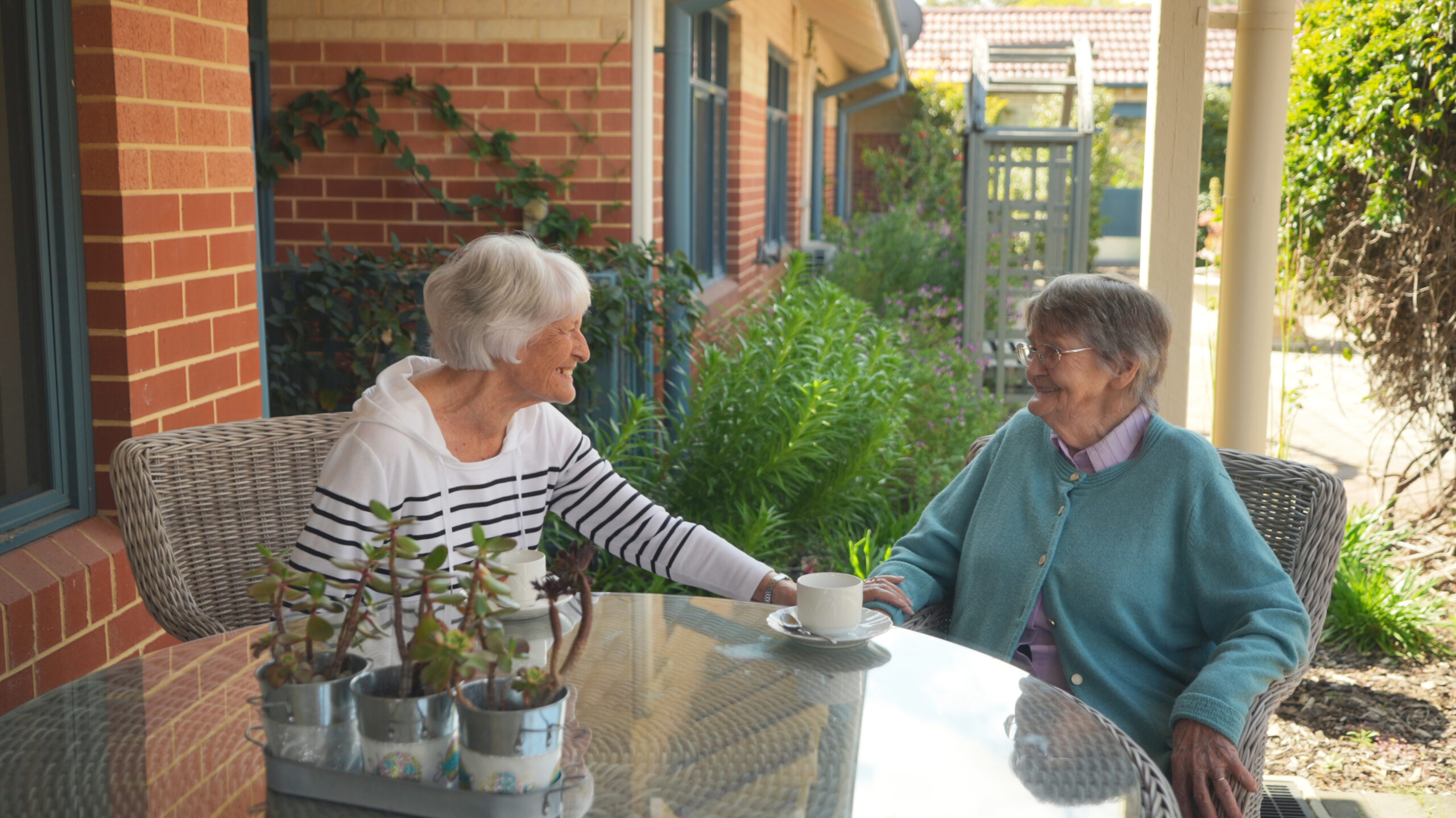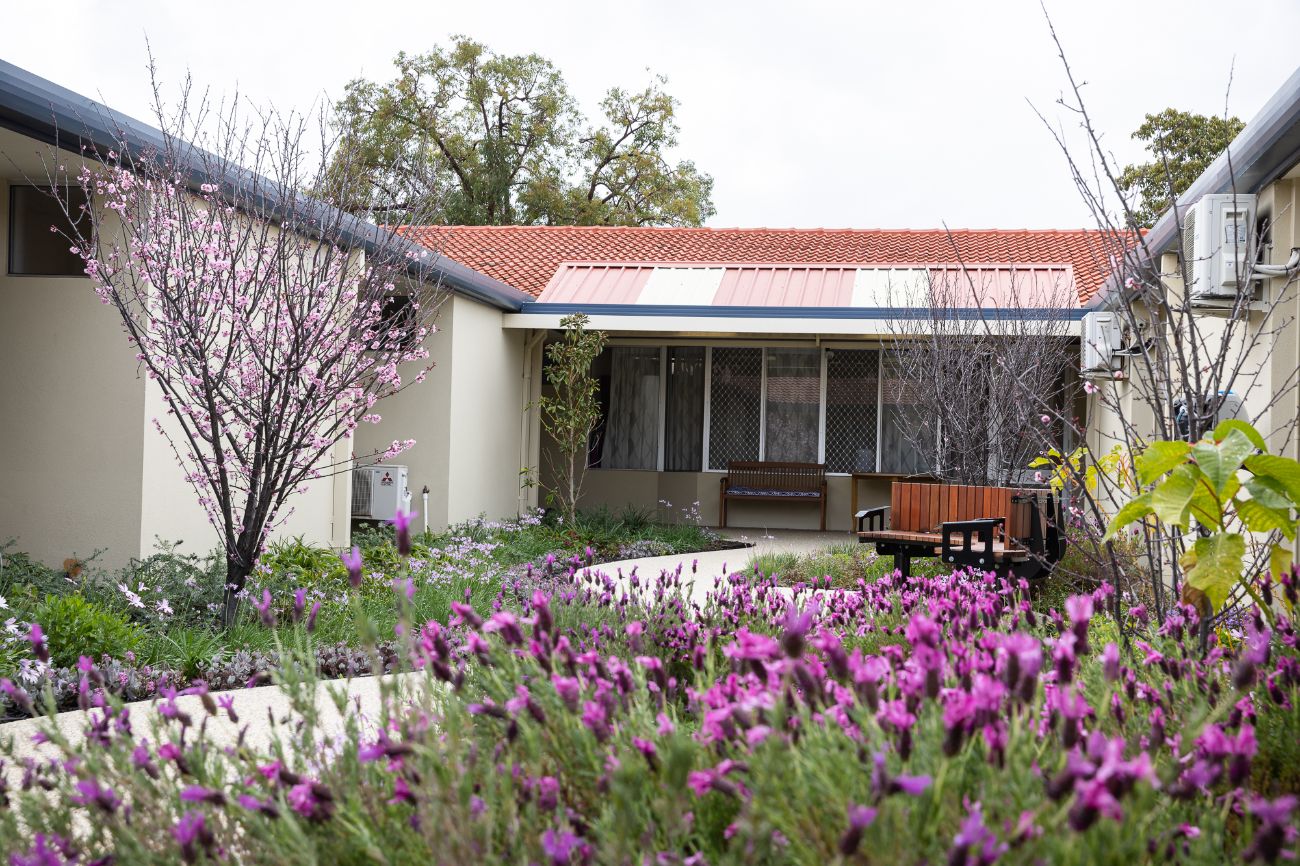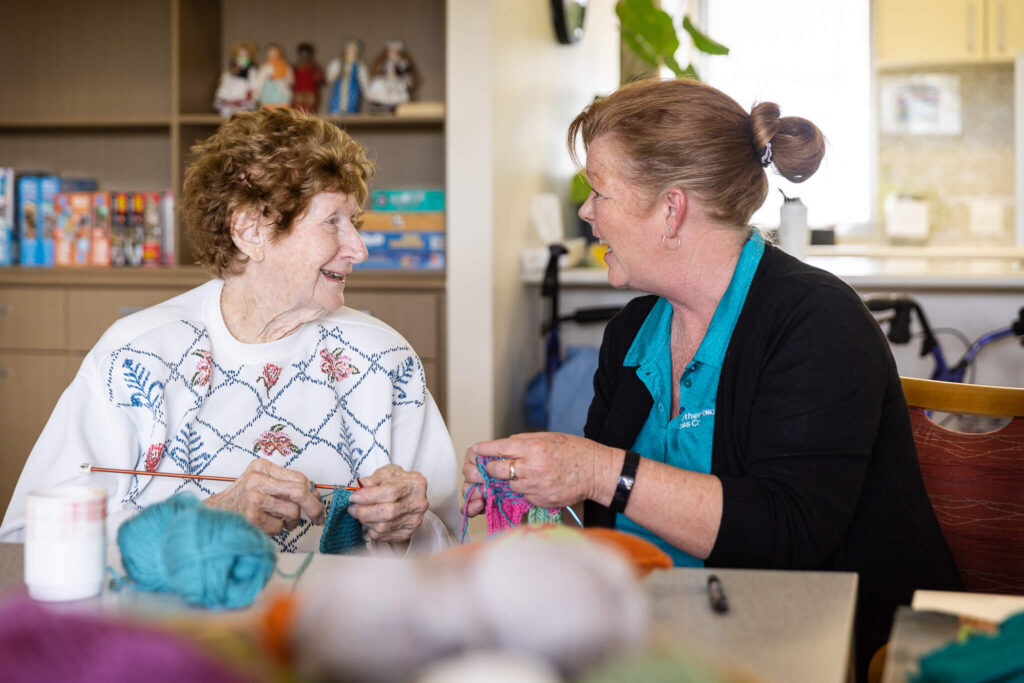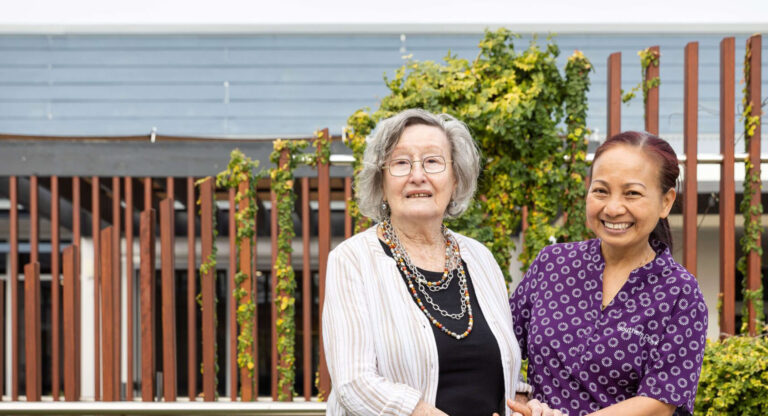The decision to transition a loved one living with dementia into a residential care home can be emotionally overwhelming and challenging. But being prepared and understanding the support options available can make the process a little easier.
At SCC (WA) we aim to reduce or stabilise symptoms of all levels of dementia through specialist care planning including medication monitoring, exercise, diet and sensory based activities to help residents live their best lives.
When residents first move into one of our homes, we encourage their families to complete a personal profile to help us understand more about the activities their loved ones enjoyed outside of residential care, so that our staff can support these activities wherever possible.
Our purpose-built homes offer a supportive environment to allow residents to live each day to the fullest. We also provide a tailored menu for residents who may be active and like to eat on the go, with a choice of nourishing finger foods and snacks.
Whilst most people living with dementia can successfully live their best life in an aged care home environment, if the person is living with a severe dementia diagnosis it may be necessary to consider access to a safe, respectful home-like memory support unit located within many of our aged care homes.
Memory support units have improved accessibility, safe and respectful access to outside spaces and provide opportunities for connection through social engagement. These areas within our homes are best suited to people who may have a severe dementia diagnosis. Upon admission our staff will ensure they have received all relevant medical history as well as the most recent Aged Care Assessment. We also encourage residents to stay connected with their existing medical practitioners.




